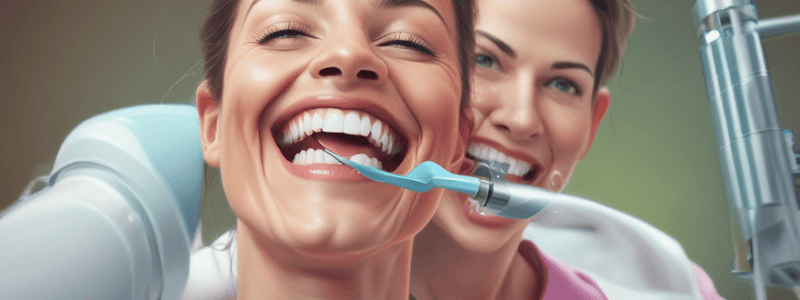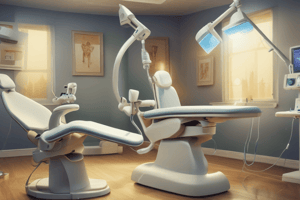Podcast
Questions and Answers
The thermal effect of CO2 laser irradiation is primarily responsible for the stimulation of dentin formation.
The thermal effect of CO2 laser irradiation is primarily responsible for the stimulation of dentin formation.
False (B)
CO2 laser has been shown to have a 100% success rate in pulp capping.
CO2 laser has been shown to have a 100% success rate in pulp capping.
False (B)
The use of a super pulsed CO2 laser prevents significant temperature rises at the pulp tissue.
The use of a super pulsed CO2 laser prevents significant temperature rises at the pulp tissue.
True (A)
CO2 laser has been shown to be less effective than conventional pulp capping techniques.
CO2 laser has been shown to be less effective than conventional pulp capping techniques.
The primary effect of CO2 laser irradiation is to promote bacterial invasion of the pulp.
The primary effect of CO2 laser irradiation is to promote bacterial invasion of the pulp.
Flashcards are hidden until you start studying
Study Notes
CO2 Laser in Pulp Capping
- CO2 laser has shown a high success rate in pulp capping, with one study reporting a success rate of 89%.
- The laser group success rate is higher than that obtained from conventional pulp capping techniques.
- The thermal effect of laser irradiation causes sterilization and scar formation in the irradiation area.
- Sterilization and scar formation help preserve the pulp from bacterial invasion.
- Laser treatment may directly stimulate dentin formation, as indicated by a study using a super pulsed CO2 laser.
- The super pulsed CO2 laser prevents significant temperature rises at the pulp tissue, unlike continuous wave lasers.
Studying That Suits You
Use AI to generate personalized quizzes and flashcards to suit your learning preferences.



